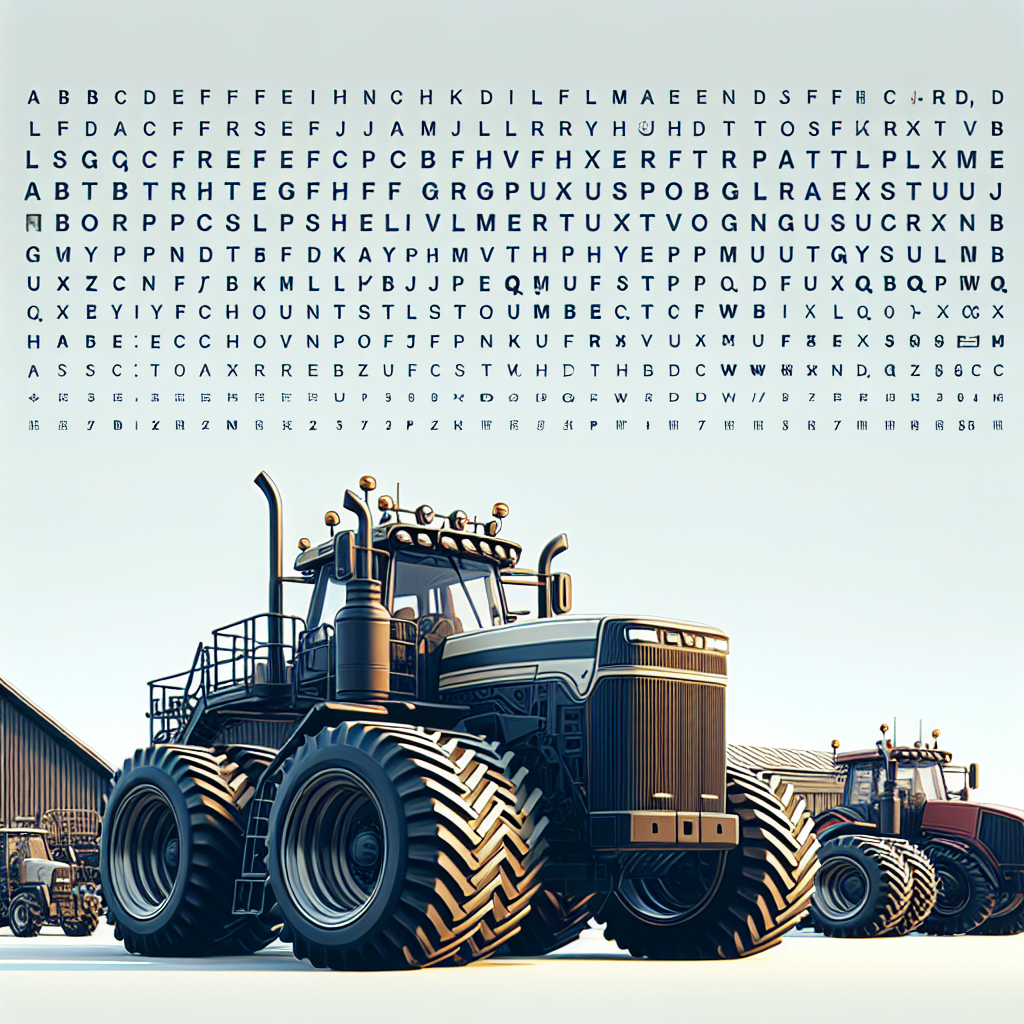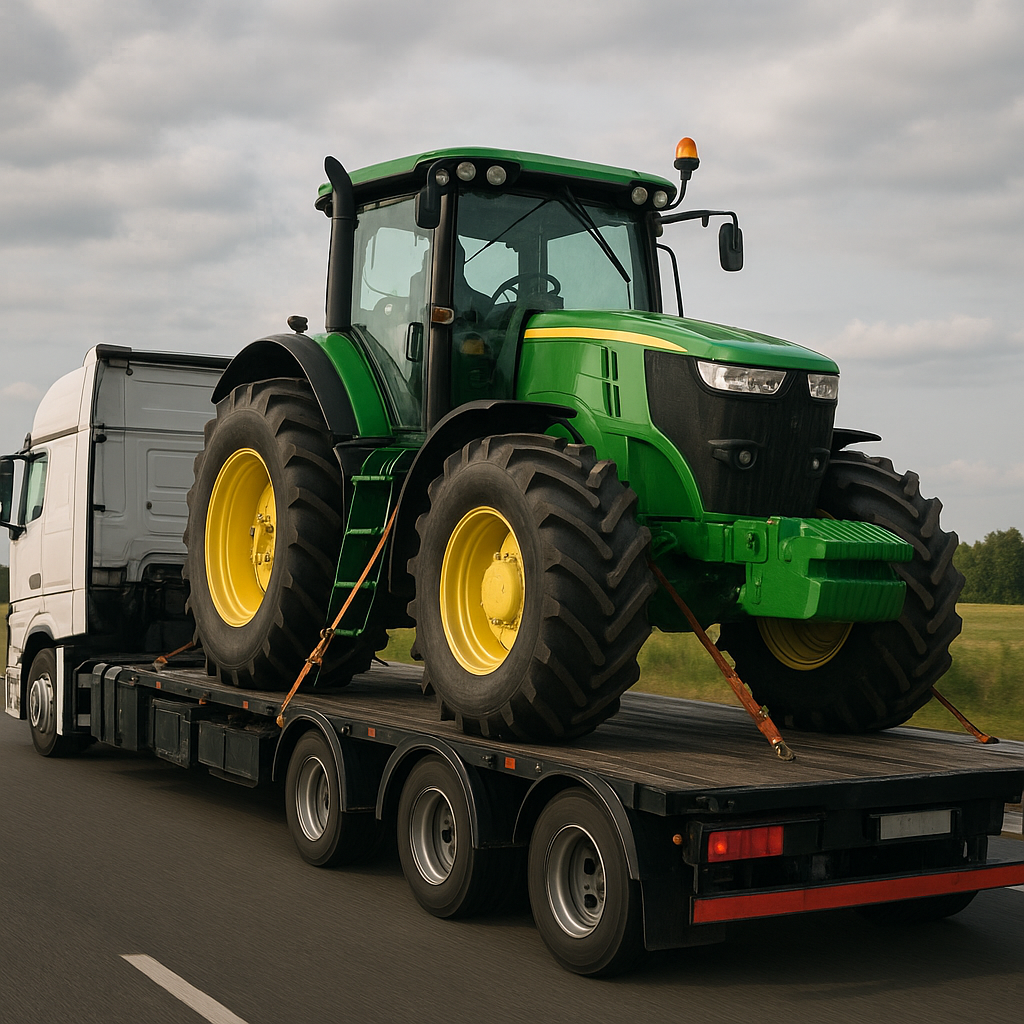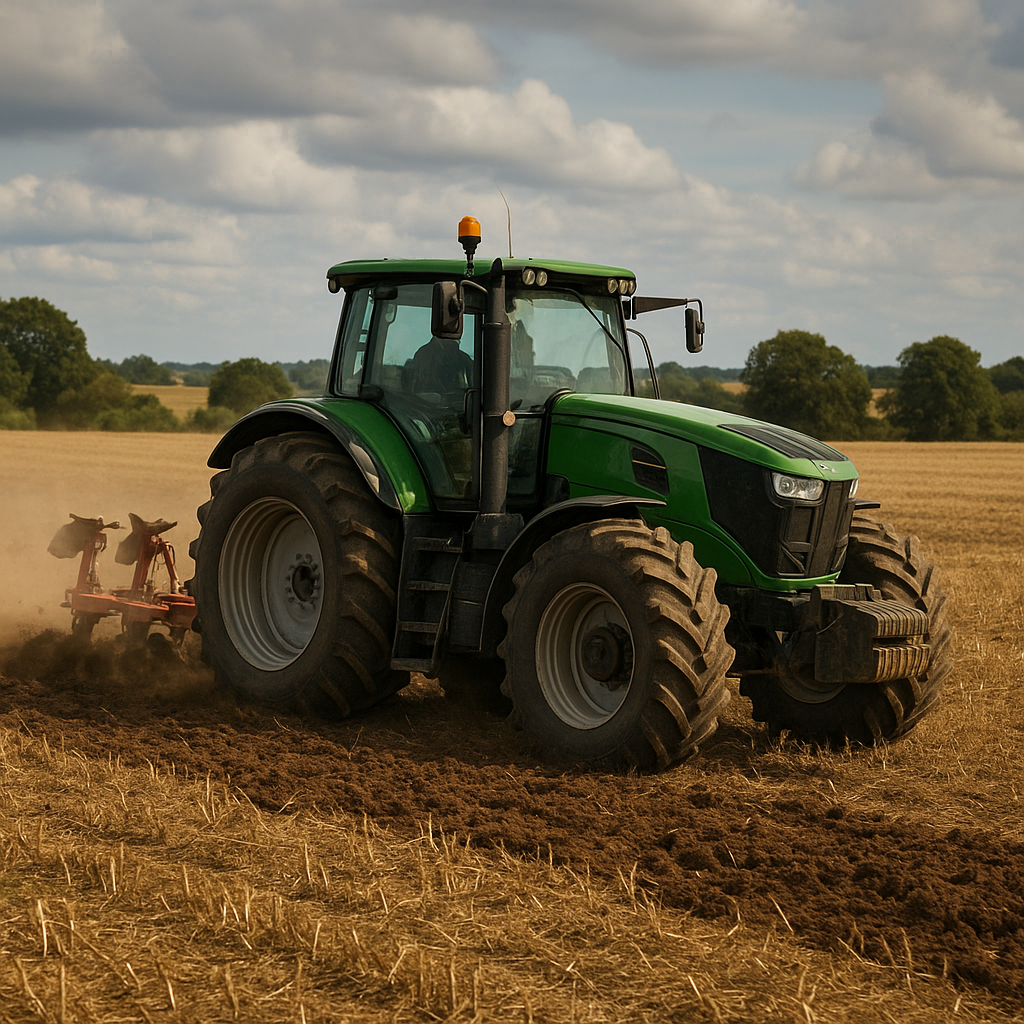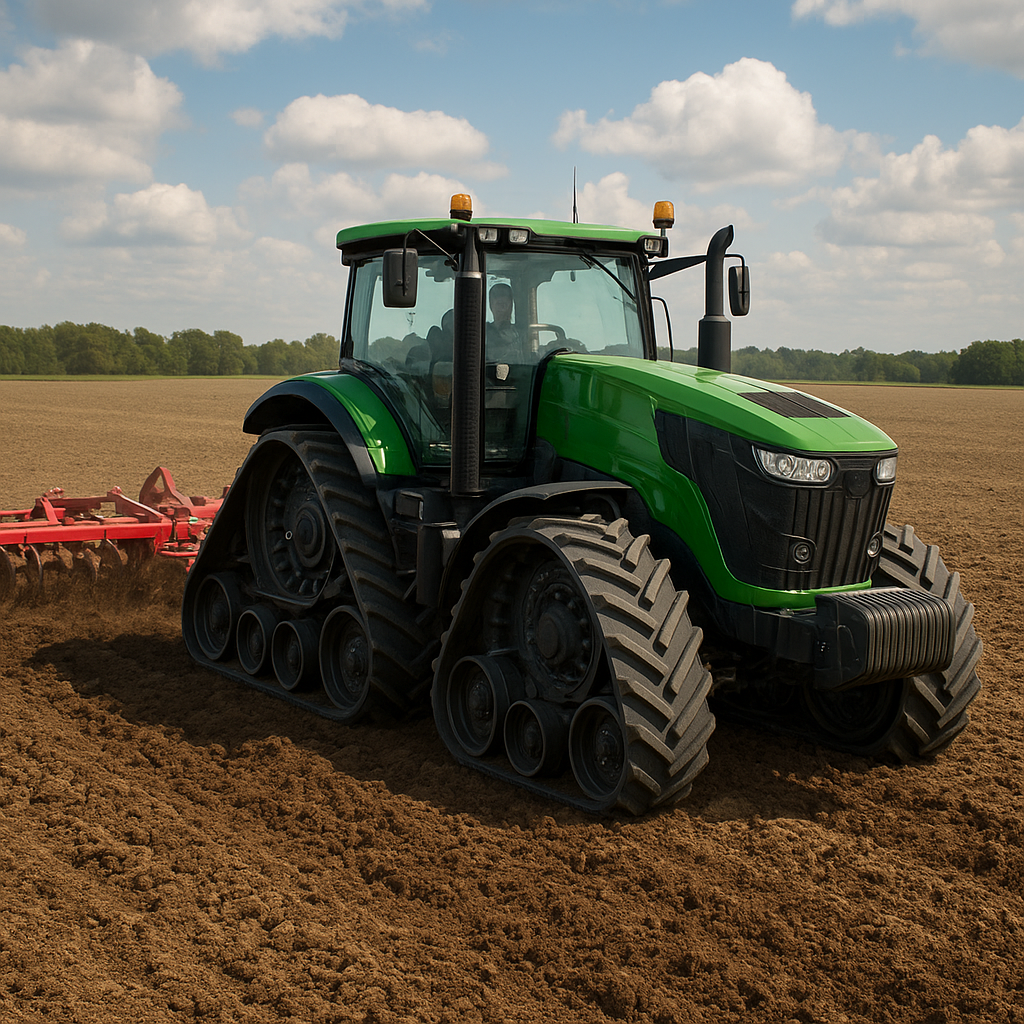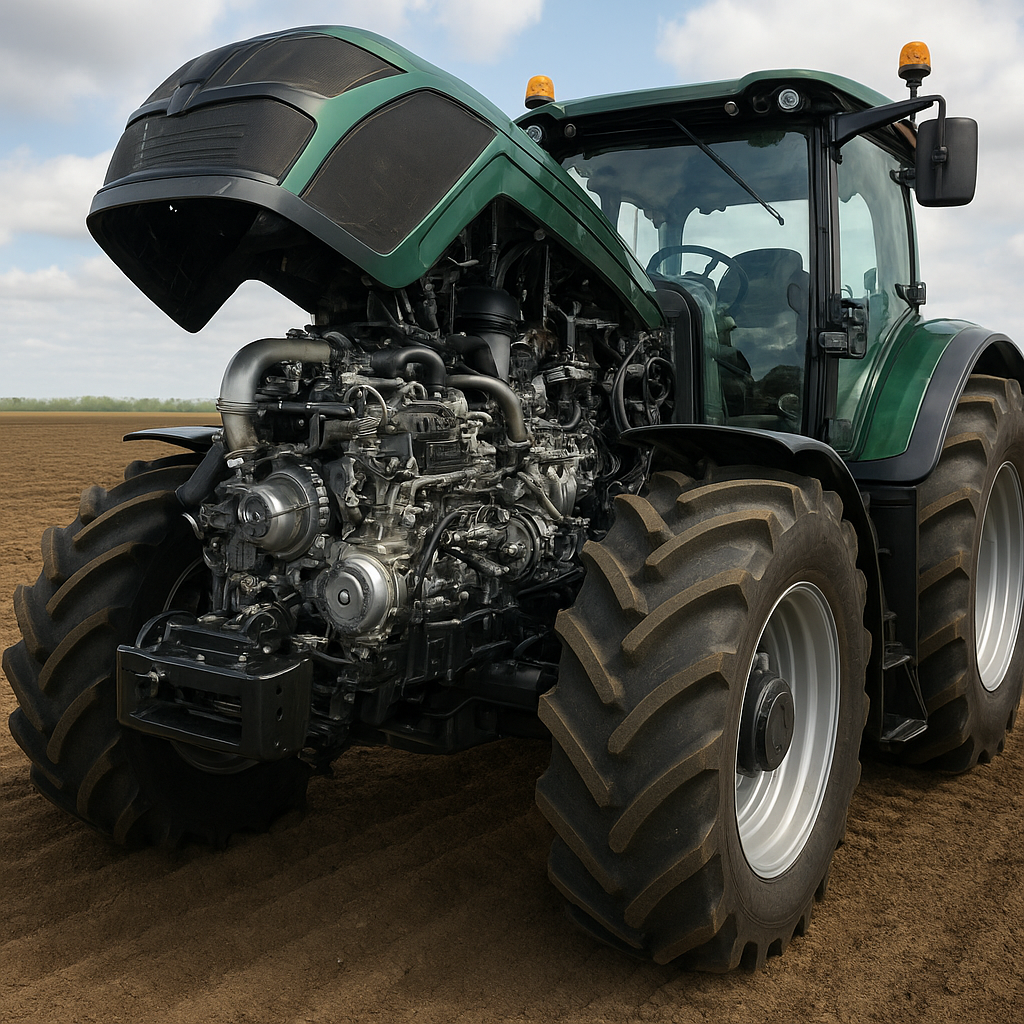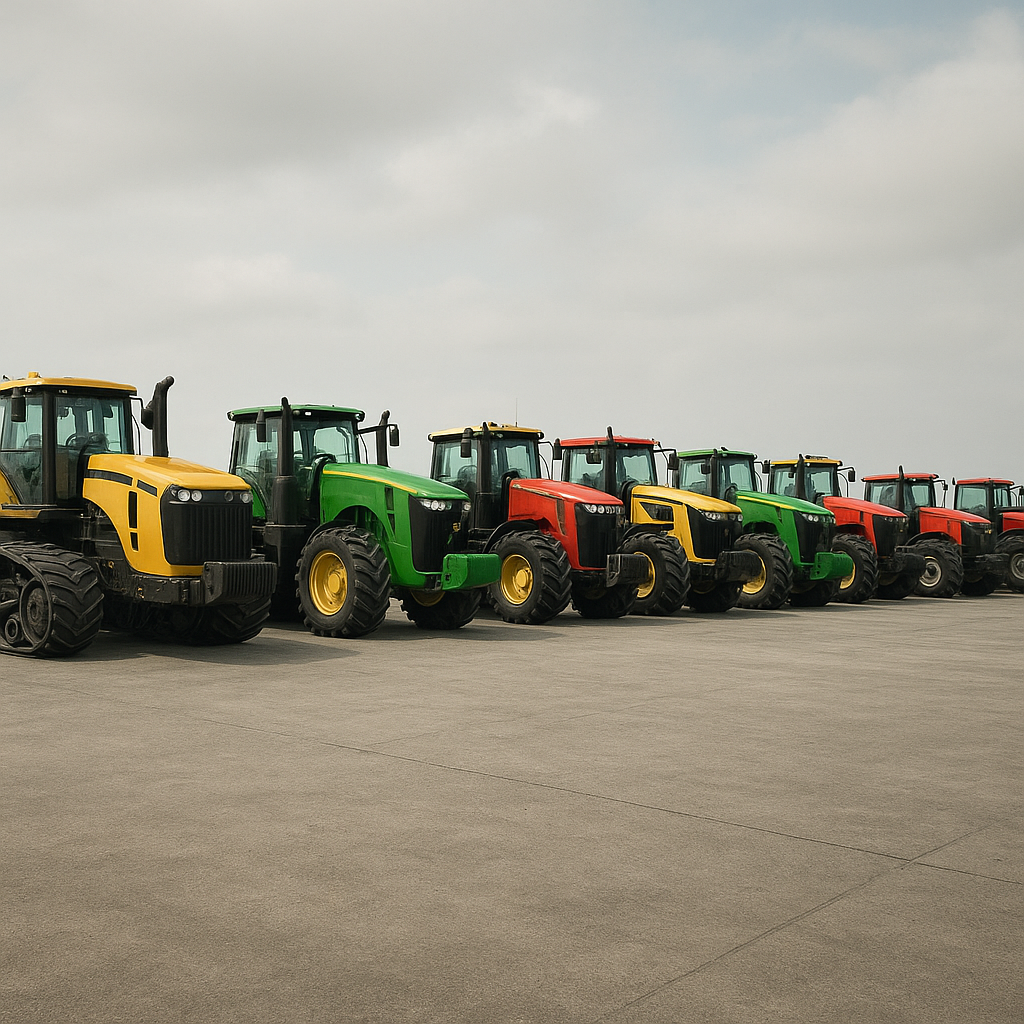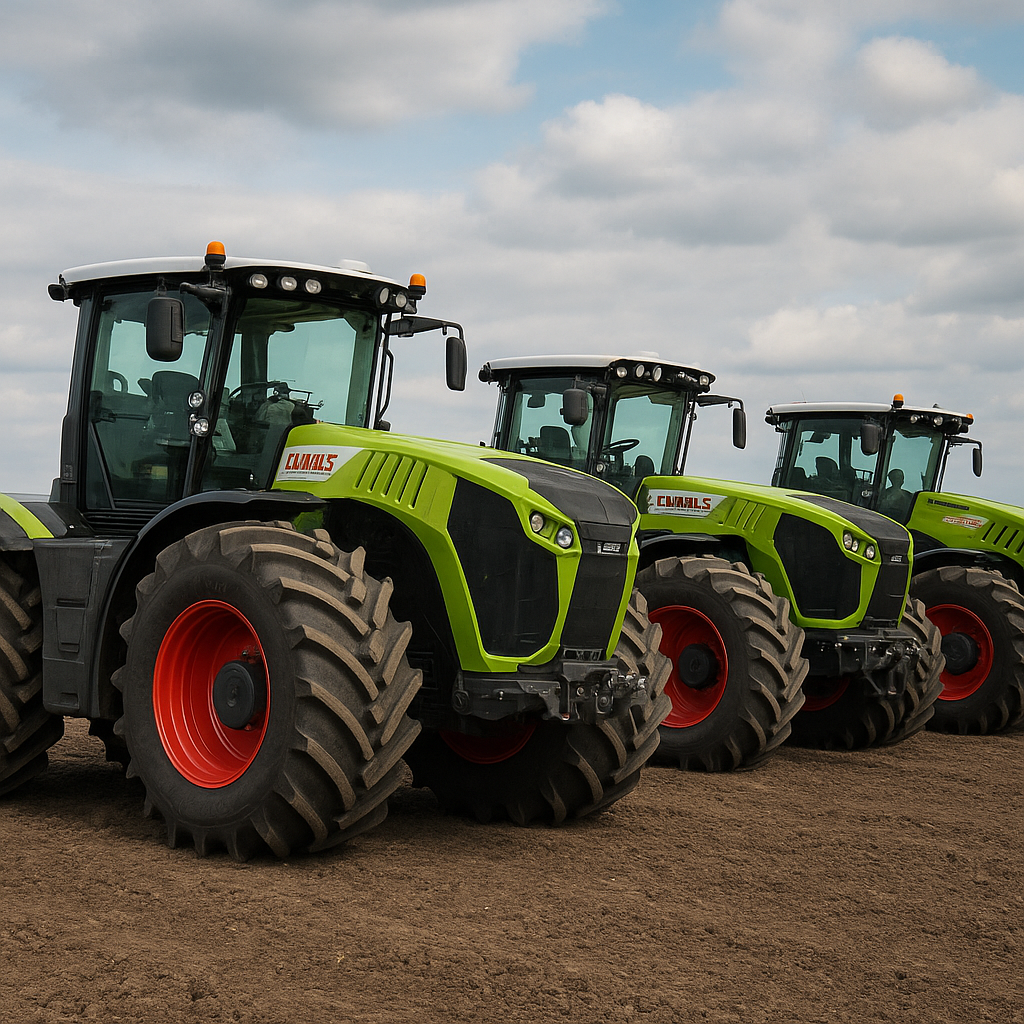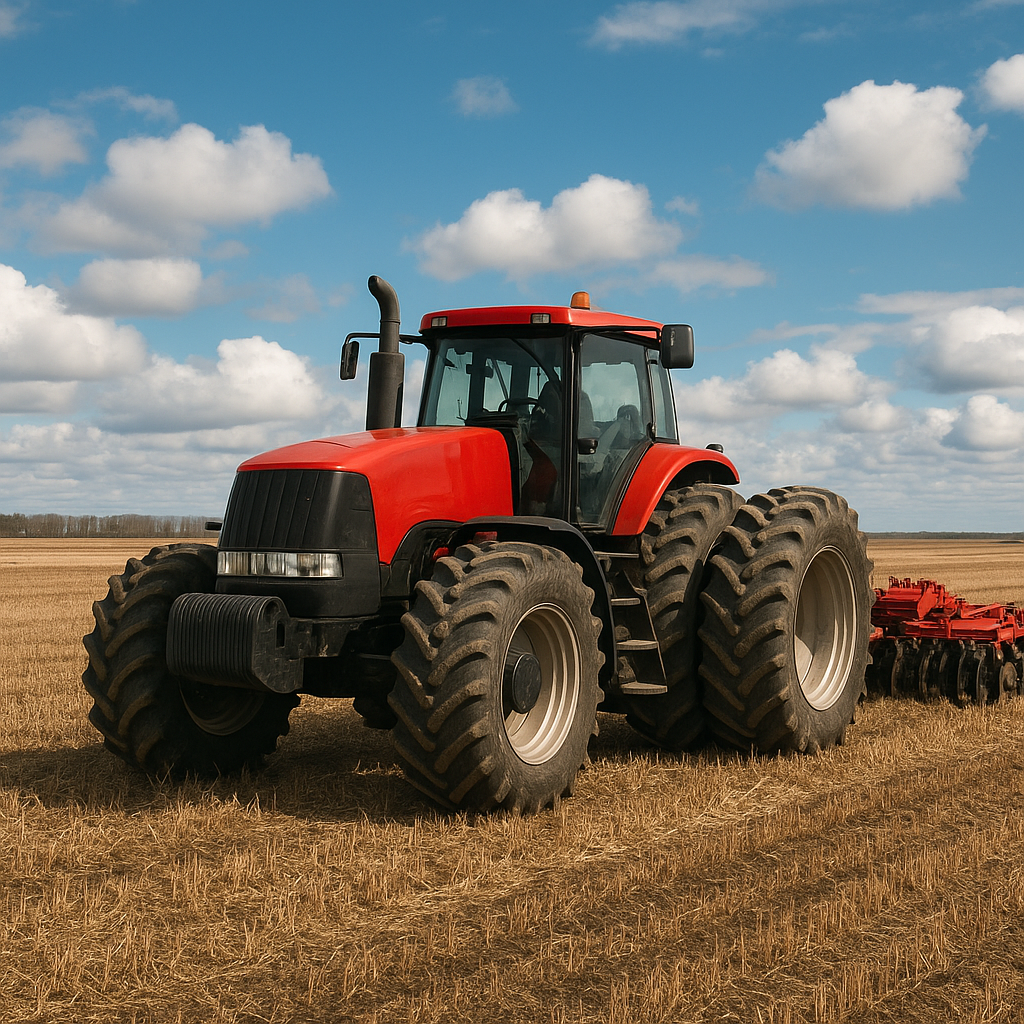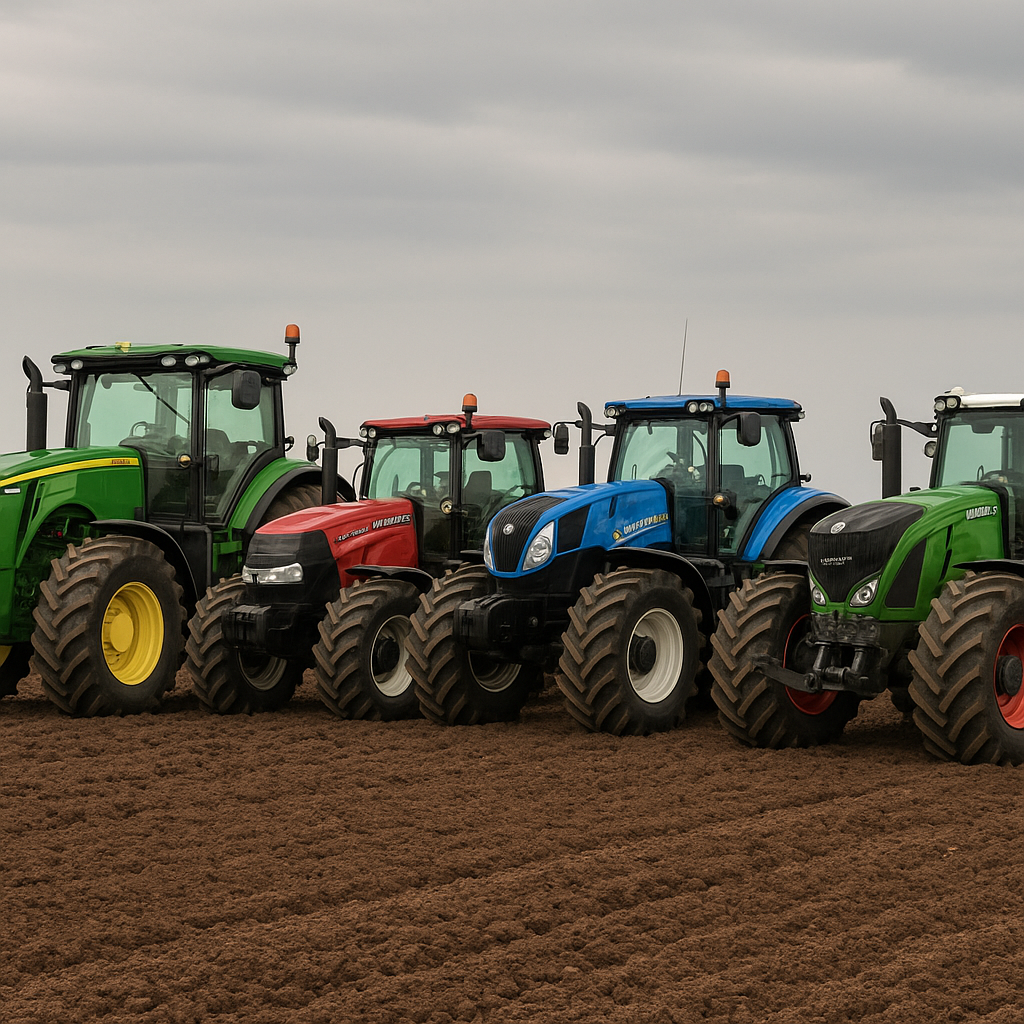Choosing the right tractor for livestock farming is a critical decision that can significantly impact the efficiency and productivity of your farm. With a wide range of tractors available on the market, each designed for specific tasks and conditions, it is essential to understand the features and capabilities that will best meet your needs.
Understanding Tractor Types and Their Uses
Tractors come in various types and sizes, each suited for different farming activities. When selecting a tractor for livestock farming, it is important to consider the specific tasks you will be performing, such as feeding, manure handling, and fieldwork. Here are some common types of tractors and their primary uses:
Utility Tractors
Utility tractors are versatile machines designed for a wide range of tasks on a livestock farm. They are typically smaller and more maneuverable than other types of tractors, making them ideal for tasks such as feeding livestock, moving hay bales, and cleaning barns. Utility tractors often come with a variety of attachments, such as front-end loaders and bale spears, which enhance their functionality.
Row Crop Tractors
Row crop tractors are designed for tasks that require precision and control, such as planting, cultivating, and harvesting crops. While they are not typically used for livestock-specific tasks, they can be valuable on a mixed-use farm where both crop and livestock farming are practiced. These tractors are equipped with adjustable wheel spacing and high ground clearance to navigate between rows of crops without causing damage.
Compact Tractors
Compact tractors are smaller, lightweight machines that are perfect for small-scale livestock farms or operations with limited space. They are easy to maneuver and can handle a variety of tasks, including mowing, tilling, and light-duty hauling. Compact tractors are also more affordable and require less maintenance than larger models, making them a cost-effective choice for many farmers.
Key Features to Consider
When choosing a tractor for livestock farming, several key features should be taken into account to ensure the machine meets your specific needs. These features include engine power, hydraulic capacity, transmission type, and comfort and safety features.
Engine Power
The engine power of a tractor, measured in horsepower (HP), determines its ability to perform various tasks. For livestock farming, a tractor with sufficient horsepower is essential for handling heavy loads, such as large bales of hay or manure spreaders. The required horsepower will depend on the size of your farm and the specific tasks you need to perform. Generally, utility tractors with 40-100 HP are suitable for most livestock farming operations.
Hydraulic Capacity
Hydraulic capacity is another important factor to consider, as it affects the tractor’s ability to operate attachments and implements. A higher hydraulic capacity allows for more efficient operation of front-end loaders, bale spears, and other hydraulic-powered tools. When selecting a tractor, ensure that its hydraulic system can handle the demands of your farm’s equipment.
Transmission Type
Tractors come with different types of transmissions, including manual, automatic, and hydrostatic. Each type has its advantages and disadvantages, depending on the tasks you will be performing. Manual transmissions offer greater control and are typically more durable, while automatic transmissions provide ease of use and are ideal for tasks that require frequent speed changes. Hydrostatic transmissions offer smooth and precise control, making them suitable for tasks that require fine adjustments, such as mowing or tilling.
Comfort and Safety Features
Comfort and safety are crucial considerations when choosing a tractor, especially if you will be spending long hours operating the machine. Look for tractors with ergonomic seating, adjustable controls, and climate control options to ensure a comfortable working environment. Safety features, such as rollover protection systems (ROPS), seat belts, and good visibility, are also essential to protect the operator and prevent accidents.
Top Tractor Brands for Livestock Farming
Several reputable brands offer high-quality tractors designed for livestock farming. Each brand has its unique features and advantages, so it is important to compare options and choose the one that best meets your needs. Here are some of the top tractor brands to consider:
John Deere
John Deere is a well-known and trusted brand in the agricultural industry, offering a wide range of tractors suitable for livestock farming. Their utility tractors, such as the John Deere 5E and 6E series, are popular choices for their reliability, versatility, and advanced features. John Deere tractors are known for their powerful engines, efficient hydraulic systems, and comfortable operator stations.
New Holland
New Holland is another leading brand that offers a variety of tractors designed for livestock farming. The New Holland T4 and T5 series utility tractors are highly regarded for their performance, durability, and ease of use. New Holland tractors are equipped with advanced technology, such as the IntelliView™ IV display and Auto Command™ transmission, which enhance productivity and efficiency on the farm.
Case IH
Case IH is a reputable brand that provides a range of tractors suitable for livestock farming. The Case IH Farmall series utility tractors are known for their robust construction, powerful engines, and versatile capabilities. These tractors are designed to handle a variety of tasks, from feeding and manure handling to fieldwork and transportation. Case IH tractors also feature comfortable operator stations and advanced safety features.
Massey Ferguson
Massey Ferguson is a trusted name in the agricultural industry, offering reliable and efficient tractors for livestock farming. The Massey Ferguson 4700 and 5700 series utility tractors are popular choices for their performance, versatility, and ease of maintenance. Massey Ferguson tractors are equipped with powerful engines, efficient hydraulic systems, and comfortable operator stations, making them ideal for a wide range of tasks on the farm.
Maintenance and Care Tips
Proper maintenance and care are essential to ensure the longevity and performance of your tractor. Regular maintenance not only extends the life of the machine but also helps prevent costly repairs and downtime. Here are some maintenance and care tips for your livestock farming tractor:
Regular Inspections
Conduct regular inspections of your tractor to identify any potential issues before they become major problems. Check the engine oil, hydraulic fluid, and coolant levels, and inspect the tires, belts, and hoses for signs of wear or damage. Regular inspections help ensure that your tractor is in good working condition and ready for use when needed.
Scheduled Maintenance
Follow the manufacturer’s recommended maintenance schedule for your tractor. This includes routine tasks such as oil changes, filter replacements, and lubrication of moving parts. Scheduled maintenance helps keep your tractor running smoothly and efficiently, reducing the risk of breakdowns and extending the life of the machine.
Clean and Store Properly
Keep your tractor clean and free of dirt, debris, and corrosive materials. Regularly wash the exterior and clean the interior to prevent the buildup of grime and contaminants. When not in use, store your tractor in a dry, sheltered location to protect it from the elements and reduce the risk of rust and corrosion.
Monitor Tire Pressure
Proper tire pressure is essential for the safe and efficient operation of your tractor. Check the tire pressure regularly and adjust it according to the manufacturer’s recommendations. Properly inflated tires provide better traction, reduce fuel consumption, and extend the life of the tires.
Use Quality Fuel and Fluids
Use high-quality fuel and fluids that meet the manufacturer’s specifications for your tractor. Using the right fuel and fluids helps ensure optimal performance and reduces the risk of engine and hydraulic system issues. Regularly check and replace fuel and air filters to maintain clean and efficient operation.
Conclusion
Choosing the right tractor for livestock farming is a crucial decision that can greatly impact the efficiency and productivity of your farm. By understanding the different types of tractors, key features to consider, and top brands available, you can make an informed choice that meets your specific needs. Additionally, proper maintenance and care are essential to ensure the longevity and performance of your tractor. With the right tractor and regular upkeep, you can enhance the success of your livestock farming operation and achieve your farming goals.
